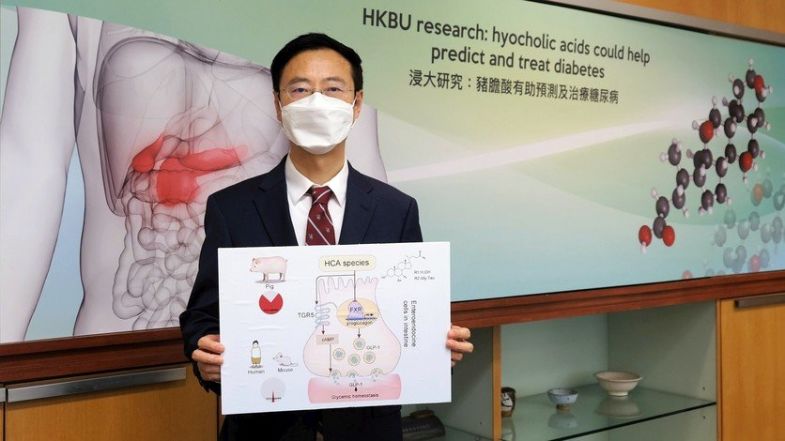
Professor Jia Wei has revealed that hyocholic acid and its derivatives are a promising risk indicator of type 2 diabetes
A little-known bile acid and its derivatives could potentially transform the prediction and treatment of diabetes, according to a series of studies led by researchers from Hong Kong Baptist University (HKBU).
Hyocholic acid and its derivatives, collectively known as HCAs, help to facilitate fat digestion in humans and pigs, but new research has also uncovered their role in regulating blood glucose levels and protecting against diabetes. The disorder, which is characterised by high blood glucose levels, affects over 400 million people worldwide.
Led by Professor Jia Wei, Chair Professor of the School of Chinese Medicine at HKBU, the researchers found that blood glucose levels are significantly lower in pigs than humans despite their low activity levels and high-calorie diet. While HCAs only make up 2% of bile acids in humans, they constitute nearly 80% of bile acids in pigs, with the results indicating their potential role in maintaining stable blood glucose levels. Further analysis of two large-scale cohort studies also revealed that the levels of HCAs are a strong predictor of metabolic syndromes such as diabetes.
The important role played by HCAs was confirmed in lab experiments, as Professor Jia and his team found that they regulate blood glucose levels by stimulating the secretion of a hormone called glucagon-like peptide-1 which subsequently enhances insulin secretion and decreases blood glucose levels.
“The results of our studies provide evidence of how HCAs help to regulate blood glucose levels, and they have revealed the mechanism of how it is achieved at a cellular level. HCAs demonstrate promising potential, and they could be developed into an agent for the prediction and treatment of type 2 diabetes,” said Professor Jia.
The research was published in the journals Cell Metabolism and Nature Communications.
















